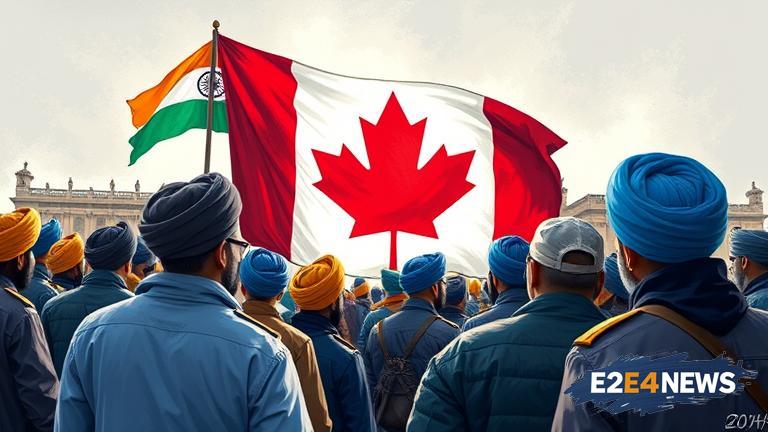The Khalistan movement, a separatist movement seeking to create an independent Sikh state, has been a contentious issue in India and Canada for decades. Recently, a Canadian court has made a judgement on Indian asylum requests related to this movement, sparking a wave of controversy and debate. The court’s decision has been met with criticism from the Indian government, which has long considered the Khalistan movement a threat to national security. The movement, which emerged in the 1970s and 1980s, seeks to create an independent Sikh state, known as Khalistan, in the Indian state of Punjab. The movement has been linked to violence and terrorism, and has been banned in India. However, many Sikhs in Canada and other countries continue to support the movement, arguing that it is a legitimate struggle for self-determination. The Canadian court’s judgement has been seen as a victory for these supporters, who argue that the Indian government’s crackdown on the movement has led to human rights abuses and persecution. The Indian government, on the other hand, has argued that the movement is a threat to national security and that those who support it are promoting terrorism. The court’s decision has also sparked debate about the role of Canada in supporting or enabling the Khalistan movement. Some have argued that Canada has been too lenient in allowing supporters of the movement to operate on its soil, while others have argued that the country has a responsibility to protect the human rights of all individuals, regardless of their political beliefs. The issue has also raised questions about the relationship between Canada and India, with some arguing that the court’s decision could strain diplomatic relations between the two countries. The Khalistan movement has a long and complex history, with roots in the Indian independence movement and the subsequent partition of India and Pakistan. The movement gained momentum in the 1970s and 1980s, with the emergence of militant groups such as the Babbar Khalsa and the International Sikh Youth Federation. These groups were responsible for a number of violent attacks, including the 1985 bombing of Air India Flight 182, which killed 329 people. The Indian government responded to the movement with force, launching a number of military operations and imposing strict security measures in Punjab. Many Sikhs were arrested, detained, and tortured, leading to widespread human rights abuses. The movement has also been linked to corruption and organized crime, with some leaders accused of embezzling funds and engaging in other illicit activities. Despite these challenges, the Khalistan movement continues to have support among some Sikhs in Canada and other countries. Many argue that the movement is a legitimate struggle for self-determination and that the Indian government’s crackdown has been heavy-handed and unjust. The Canadian court’s judgement has been seen as a vindication of these views, and has sparked hopes that the movement may be able to gain greater recognition and support in the future. However, the issue remains highly contentious, and it is likely that the debate will continue for many years to come. The Indian government has already announced plans to appeal the court’s decision, and it is likely that the issue will be the subject of further litigation and diplomatic efforts. The case has also raised questions about the role of the Canadian government in supporting or enabling the Khalistan movement, and has sparked calls for greater transparency and accountability. The issue is complex and multifaceted, and will require careful consideration and nuanced understanding to resolve. The Khalistan movement is a symptom of deeper issues, including poverty, inequality, and social injustice, and addressing these underlying issues will be critical to finding a lasting solution. The Canadian court’s judgement is an important step towards recognizing the human rights of all individuals, regardless of their political beliefs, and towards promoting greater understanding and reconciliation between different communities. However, much work remains to be done to address the root causes of the conflict and to find a lasting peace. The international community has a critical role to play in supporting efforts to promote peace and reconciliation, and in encouraging the Indian government to address the underlying issues that have driven the Khalistan movement. The United Nations and other international organizations have a responsibility to promote human rights and to support efforts to resolve conflicts peacefully. The issue of the Khalistan movement is a reminder that the struggle for self-determination and human rights is ongoing, and that it requires the attention and support of the international community. The Canadian court’s judgement is an important step towards recognizing the rights of all individuals, and towards promoting greater understanding and reconciliation between different communities. It is a reminder that the struggle for human rights and self-determination is ongoing, and that it requires the attention and support of the international community.
